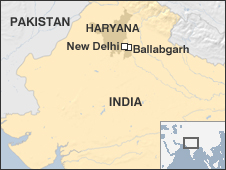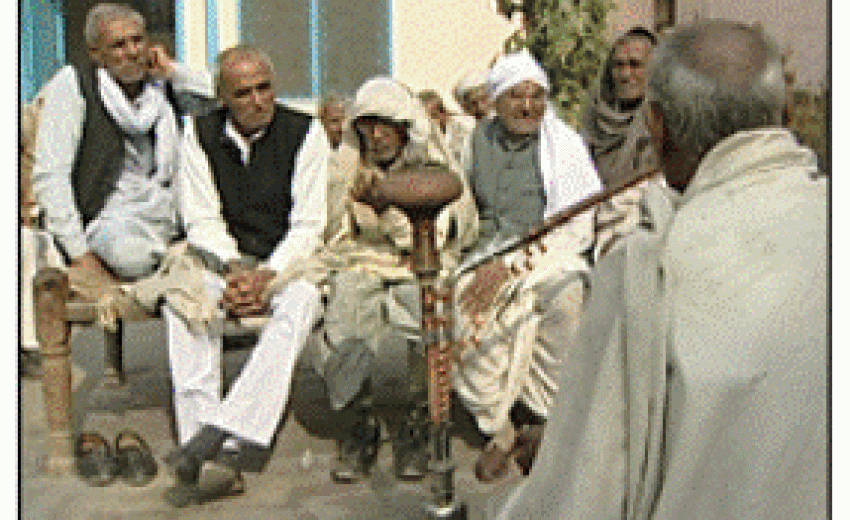Ballabgarh in northern India has unusually low levels of Alzheimer's disease. More than 820,000 people in the UK are living with dementia, a number that is expected to double by 2051. Is there anything that can be learnt from this region to slow the trend?
 As the sun breaks through the morning mist in Ballabgarh, the elders of the village make their way to their regular meeting spot to exchange stories and share a traditional hookah pipe.
As the sun breaks through the morning mist in Ballabgarh, the elders of the village make their way to their regular meeting spot to exchange stories and share a traditional hookah pipe.
These men are in their sixties and seventies, while their faces bear the evidence of years of hard work in the fields, their minds are still sharp.
In other parts of the world, people of their age would be at some risk of developing dementia. But here, Alzheimer's disease is rare. In fact, scientists believe recorded rates of the condition in this small community are lower than anywhere else in the world.
76-year-old Parshadi Lal says: "I feel good, I feel healthy, I have a walk every morning, even though my knees do now give me a bit of trouble." His friends nod in agreement.
Record low rates
Researchers from the University of Pittsburgh spent several years studying over-55s in this area.
 They tested more than 5,000 people for Alzheimer's disease, using screening processes designed to fit in with local culture, and relevant for people who could not read or write.
They tested more than 5,000 people for Alzheimer's disease, using screening processes designed to fit in with local culture, and relevant for people who could not read or write.
They wanted to be sure they did not miss any cases of the condition.
It is an area where people do not tend to live as long as they do in wealthier, more developed areas, so you would expect rates of Alzheimer's disease to be lower.
But even after the scientists factored in the lower life expectancy of people in this area, the rate of Alzheimer's disease was significantly below those in the UK - and less than a third of those in parts of the US.
"We had a hunch that rates here would be lower," says Dr Vijay Chandra, one of the study authors. In fact, they found what appeared to be among the lowest rates of the condition ever recorded by scientists.
So what is it about the people of Ballabgarh that is protecting them from a condition that affects about 36 million people worldwide?
Gene search
 Dr Chandra told me they tested people to see whether fewer of them carried the APO4E gene, which predisposes people to Alzheimer's disease. They did not.
Ballabgarh Northern India
Dr Chandra told me they tested people to see whether fewer of them carried the APO4E gene, which predisposes people to Alzheimer's disease. They did not.
Ballabgarh Northern India
When compared to people living in a community in Pennsylvania, US, they found almost exactly the same proportion carried the gene.
But in contrast with lives in Pennsylvania and other parts of the world, the people of Ballabgarh are unusually healthy. It is a farming community, so most of them are very physically active and most eat a low-fat, vegetarian diet. Obesity is virtually unheard of.
Life in this fertile farming community is also low in stress, and family support is still strong, unlike in other, more urban parts of India.
"It all leads to a happy body, and a happy mind and hopefully a happy brain," says Dr Chandra.
"Cholesterol levels here are much lower. We believe that is what is protecting the community."
Life in Ballabgarh could not be more different from the complicated, stressful existence many of us lead in the rest of the world. But perhaps this community has something to teach us.
